Tooth extraction is a dental procedure in which a tooth is removed from its socket in the jawbone. It is typically performed when a tooth is severely decayed, damaged beyond repair, or causing oral health issues such as infection or overcrowding.
The tooth extraction process involves numbing the area with local anesthesia to ensure a painless procedure. The dentist uses specialized tools to gently loosen and remove the tooth. In some cases, a surgical extraction may be necessary for teeth that are impacted or cannot be easily accessed. Following the extraction, the dentist provides aftercare instructions to promote healing and prevent complications. Tooth extraction is a common and safe procedure that aims to alleviate pain, resolve dental issues, and restore oral health.
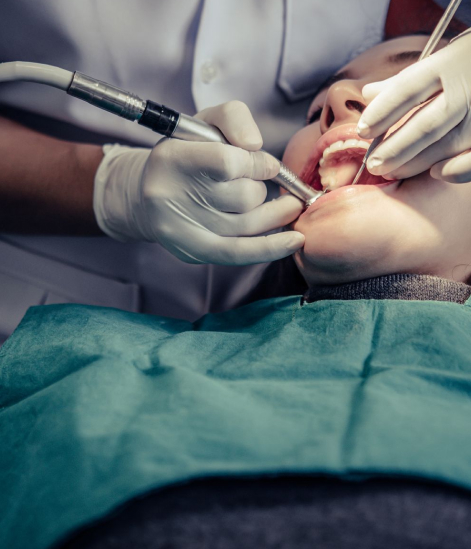
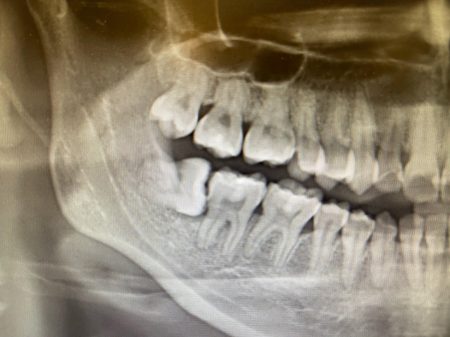
Impacted wisdom tooth extraction is a dental procedure performed to remove wisdom teeth that are unable to fully emerge or grow properly due to limited space or misalignment. Wisdom teeth, also known as third molars, typically erupt in late adolescence or early adulthood and can cause pain, infection, crowding, and damage to adjacent teeth if they become impacted.
The extraction process involves the dentist or oral surgeon making an incision in the gum tissue to access the impacted tooth. In some cases, the tooth may need to be divided into sections for easier removal. Local or general anesthesia is used to ensure a comfortable procedure. After the extraction, the patient receives post-operative instructions to manage any discomfort and promote healing. Impacted wisdom tooth extraction is a common dental procedure that can alleviate pain, prevent complications, and preserve oral health.
Dental implants are innovative tooth replacement options that mimic the structure and function of natural teeth. They consist of a titanium post that is surgically placed into the jawbone and serves as a sturdy foundation for a dental crown, bridge, or denture.
The implant process involves multiple steps. First, the implant is inserted into the jawbone, where it fuses with the bone over time through a process called osseointegration. Once the implant has integrated, an abutment is placed on top to connect the implant to the prosthetic tooth or teeth. Finally, a custom-made dental restoration is attached to the abutment, completing the implant restoration.
Dental implants provide several benefits, including improved chewing and speech, enhanced aesthetics, and preserved facial structure. They offer a durable, long-lasting solution for missing teeth that closely resembles natural teeth in appearance and function.
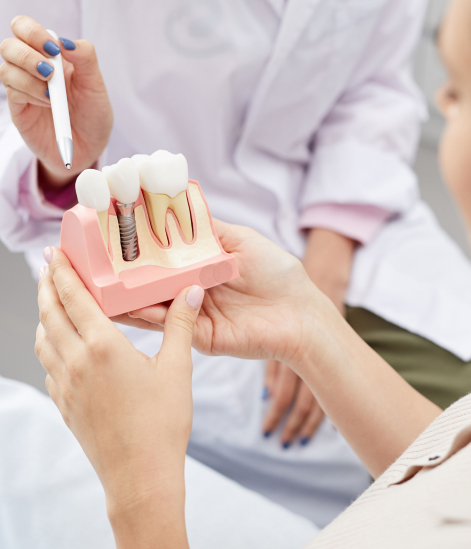
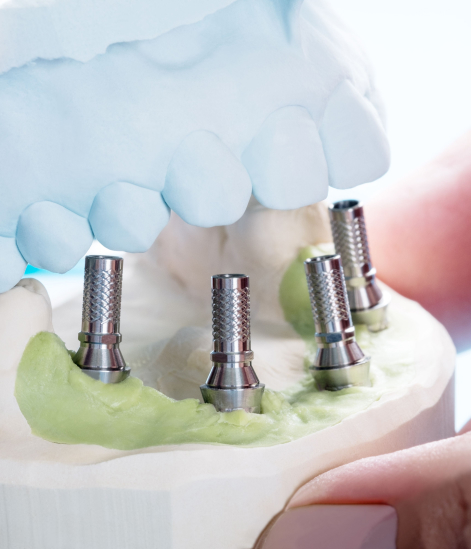
All-on-4 is an advanced dental treatment option for patients who have lost most or all of their teeth in one or both jaws. It involves the placement of four dental implants strategically positioned in the jawbone to support a full arch dental prosthesis.
The All-on-4 procedure starts with a thorough examination and planning to determine the optimal implant placement. During the treatment, the implants are surgically inserted into the jawbone at specific angles, maximizing stability and utilizing available bone. The prosthesis, which can be a fixed bridge or denture, is then attached to the implants, restoring both the appearance and functionality of a complete set of teeth.
All-on-4 provides numerous benefits, including immediate teeth replacement, improved biting and chewing capabilities, enhanced aesthetics, and increased confidence. It offers a cost-effective and efficient solution for patients seeking full mouth rehabilitation.
Implant dentures, also known as implant-supported dentures or overdentures, are removable dental prosthetics that are securely anchored to dental implants. They are an excellent solution for individuals who have lost most or all of their teeth but desire a more stable and functional alternative to traditional dentures.
The implant denture process involves the surgical placement of dental implants into the jawbone. These implants serve as stable anchors for the denture, ensuring a secure fit. The denture is custom-made to attach to the implants, providing improved stability and preventing slippage or discomfort.
Implant dentures offer several advantages over conventional dentures, including enhanced chewing and speaking abilities, increased confidence, and improved facial aesthetics. They provide a more natural and comfortable fit, allowing individuals to enjoy a higher quality of life with restored oral function and a renewed smile.
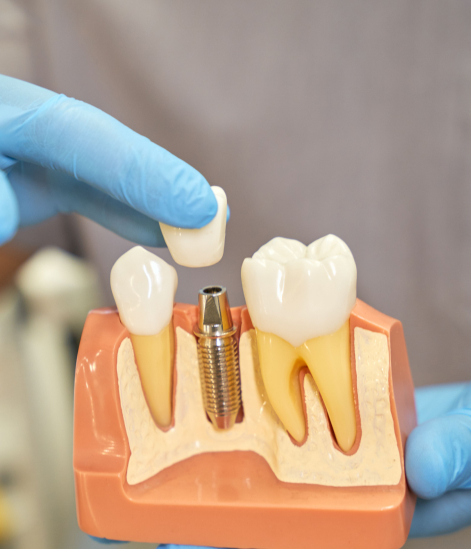
203-15292 Croydon Drive Surrey, BC. V3Z 0Z5
Phone: 604-560-3868 | 778-388-8740
Office Hours: Tuesday, Wednesday, Friday & Saturday09:00-18:00
© ABUDANCE DENTAL, All Rights Reserved